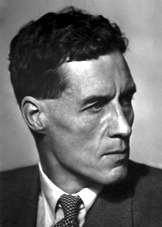
Patrick Blackett
English physicist and radio astronomer Sir Bernard Lovell wrote that those who worked with Patrick Blackett in the laboratory “were dominated by his immensely powerful personality, and those who knew him elsewhere soon discovered that the public image thinly veiled a sensitive and humane spirit.” In Patrick Blackett: Sailor, Scientist, Socialist (2002), edited by Peter Hore, Blackett is described as a “Heretic” by his mentor, Ernest Rutherford (1871-1937). Mary Jo Nye, in her notice in the Complete Dictionary of Scientific Biography (2008), writes, “The grandson of a vicar on his father’s side, Blackett respected religious observances that were established social customs, but described himself as agnostic or atheist” (Vol. 19 p. 293; also found here). Nye further observed that Patrick Blackett “believed that science, clear thinking, and good will could win the day.”


